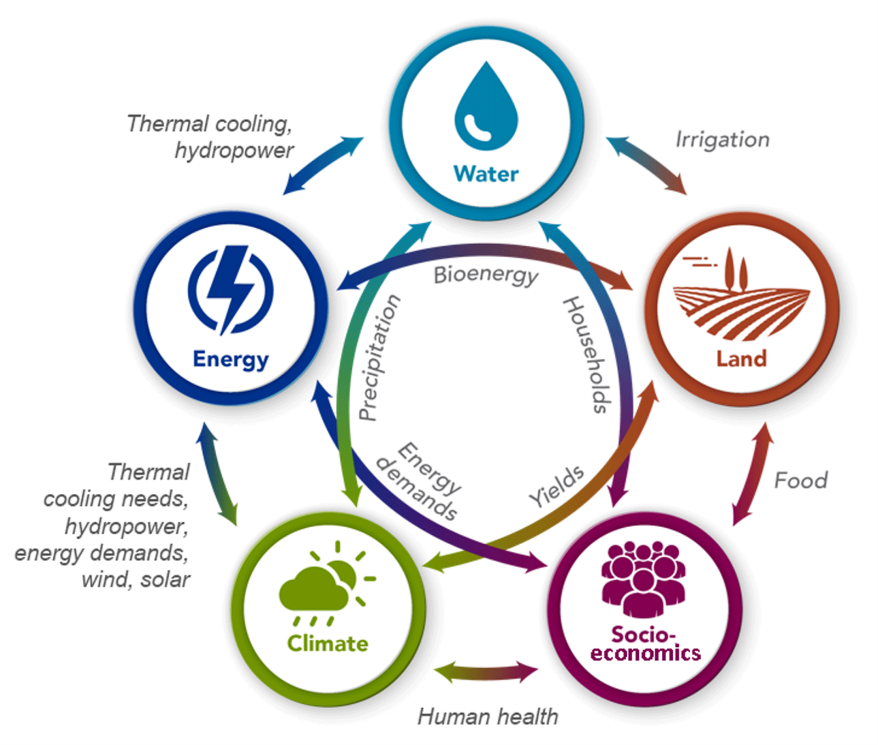Joint Global Change
Research Institute
(JGCRI)
Joint Global Change
Research Institute
(JGCRI)
JGCRI research advances our understanding of how human and Earth systems interact while providing decision-relevant information on energy systems, emissions, and interactions with other systems into the future.
JGCRI provides an integrated perspective on the ways that human and Earth systems interact and may evolve. This approach emphasizes the connections between different systems important for both decision-making and science. For example, JGCRI research covers energy, water, land, climate, emissions, and socioeconomics. It focuses not only existing trends, but also understanding how today’s actions will influence interactions in the future. Examples of recent research range from assessments of future ground water depletion to understanding of climate impacts and future energy system trends at global, national, and subnational scales.

Our research includes both open-source models, tools, and data as well as analytical research to build our science understanding of multiple systems.
Detailed Research Areas
Human-Earth System Modeling
JGCRI has been a world leader in comprehensive integrated modeling since the inception of the field more than 30 years ago. It houses one of the world’s premier multisector dynamics models – the Global Change Analysis Model (GCAM).
Decision-Relevant and Technology Research
Includes links to topical research pages covering energy and emissions policy and technology analysis, regional assessments, among others.
Biogeosciences and Ecology
Ecosystem to global-scale modeling, field experiments, and open-science databases allow JGCRI scientists to improve our understanding of the processes controlling ecological and biogeochemical dynamics.
Impacts, Adaptation, and Vulnerability
Investment and planning decisions for energy systems, critical infrastructure, drought preparedness, supply chains, wildlife conservation, human health, and other issues can benefit from the current state of knowledge of the impacts of global environmental change.